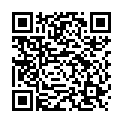|
|
|
| Module code: PIB-GAD |
|
|
4V (4 hours per week) |
|
5 |
| Semester: 5 |
| Mandatory course: no |
Language of instruction:
German |
Assessment:
Project work with composition and final presentation
[updated 30.04.2025]
|
KIB-GAD (P222-0135) Computer Science and Communication Systems, Bachelor, ASPO 01.10.2022
, semester 5, optional course
PIB-GAD (P222-0135) Applied Informatics, Bachelor, ASPO 01.10.2022
, semester 5, optional course
PIB-GAD (P222-0135) Applied Informatics, Bachelor, SO 01.10.2026
, semester 5, optional course
|
60 class hours (= 45 clock hours) over a 15-week period.
The total student study time is 150 hours (equivalent to 5 ECTS credits).
There are therefore 105 hours available for class preparation and follow-up work and exam preparation.
|
Recommended prerequisites (modules):
None.
|
Recommended as prerequisite for:
|
Module coordinator:
Prof. Dr. Maximilian Altmeyer |
Lecturer:
Dipl.-Inf. Christopher Olbertz
[updated 02.04.2025]
|
Learning outcomes:
After successfully completing this module, students will be able to conceptualize their own game and describe the game mechanics in a game design document. They will be able to organize a project based on the example of game development and lay the foundation for implementing a game.
[updated 30.04.2025]
|
Module content:
- What are games and why do people play?
- Brainstorming techniques
- Telling interactive stories
- Developing characters
- Game mechanics
- Designing levels
- Designing puzzles
- Game design document
- Analyzing the game mechanics in different types of games
- Physics in games
- Resource management and game economies
- Gamification
[updated 30.04.2025]
|
Recommended or required reading:
[updated 30.04.2025]
|


